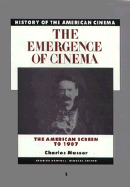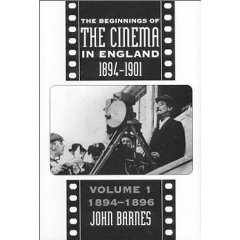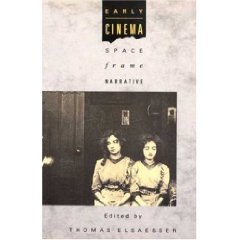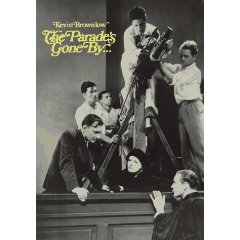You are currently browsing the category archive for the ‘Books’ category.

On the first page of The Catcher in the Rye Holden Caulfield announces:
If there’s one thing I hate, it’s the movies. Don’t even mention them to me.
Holden Caulfield was one of the few people I’d ever heard of who hated the movies. He despises the fact that his brother D.B. is out screenwriting in Hollywood, ‘being a prostitute’. But later he does recall this story of going to the movies with his sister Phoebe:
I mean if you tell old Phoebe something she knows exactly what the hell you’re talking about. I mean you can even take her anywhere with you. If you take her to a lousy movie, for instance, she knows it’s a lousy movie. If you take her to a pretty good movie, she knows it’s a pretty good movie. D.B. and I took her to see this French movie, The Baker’s Wife, with Raimu in it. It killed her. Her favourite is The 39 Steps, though, with Robert Donat. She knows the whole goddamn movie by heart, because I’ve taken her to see it about ten times. When old Donat comes up from this Scotch farmhouse, for instance, when he’s running away from the cops and all, Pheobe’ll say right out loud in the movie – right when the Scotch guy in the picture says it – ‘Can you eat the herring?’ She knows all the talk by heart. And when this professor in the picture, that really jolly German spy, sticks up his little finger with part of the middle joint missing, to show Robert Donat, old Pheobe beats him to it – she holds up her little finger at me in the dark, right in front of my face.
R.I.P. J.D. Salinger. January 1, 1919 – January 27, 2010.
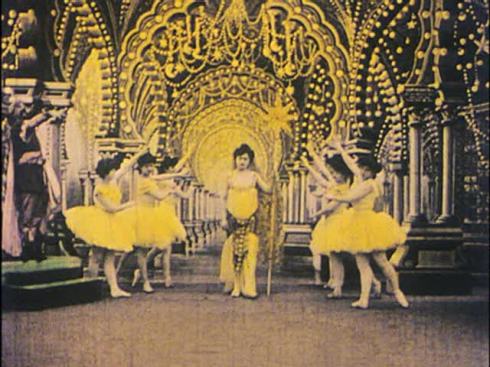
By looking at early and silent cinema you are investigating primal questions about cinema. What is cinema, where did it come from and how does it actually function? Your understanding of silent cinema will adjust your understanding of cinema right up to the present day. So if you want to study, write or talk about cinema, you’d better get reading.
Here are five books I highly recommend that will give you a foundation for understanding where cinema came from, and frameworks with which to think about early and silent film.
The Emergence of Cinema by Charles Musser
Charles Musser is a leading authority on early American film. This was the first volume of the excellent History of American Cinema series and takes a definitive look at the origins of cinema and its development. Musser makes an important distinction that cinema emerged out of existing traditions rather than being invented in an ‘Eureka’ moment. Essential for an understanding of cinema as a whole.
Read more on Amazon.com or Amazon.co.uk.
The Dream That Kicks by Michael Chanan
In this book Michael Chanan rethinks everything. All our assumptions about cinema are questioned and reassessed. He provides an insightful account of the emergence of cinema, deconstructs the myths that have surrounded ‘persistence of vision’ and provides an excellent account of how celluloid came to be cinema’s medium. A thought-provoking and exciting book.
Read more on Amazon.com or Amazon.co.uk.
The Beginnings of the Cinema in England, vols 1-5 by John Barnes
This ambitious five-volume masterwork investigates the cinema in England from 1904 to 1901. Written by revered film historian John Barnes, this was the most complete survey of early film in Britain at the time of publication in the 1970s (reprinted in the 90s) and it remains an authority on the subject to this day. To collect all five volumes will set you back £250, so if you ever find a bargain on one of the volumes, don’t think twice.
Read more on Amazon.com or Amazon.co.uk.
Early Cinema: Space, Frame, Narrative edited by Thomas Elsaesser
Published in 1990, this key collection of essays gathered groundbreaking research on early film from the 1980s. This new wave of early film study was a direct result of the annual conference of the International Federation of Film Archives held in Brighton in 1978, in which over 200 early films were studied and reassessed. What scholars found was that pre-conceived notions of early film as ‘primitive’ and ‘unsophisticated’ had to be rethought. This inspired new research methodologies, theoretical frameworks and a reassessment of the work of the Lumières, Méliès, and the Brighton school. This book acts as an important overview of early film scholarship after 12 years of research.
Read more on Amazon.com or Amazon.co.uk.
The Parade’s Gone By by Kevin Brownlow
The book that rekindled an interest in silent film. Today’s enthusiasm and preservation for silent film owes a lot to Kevin Brownlow who has tirelessly championed, preserved and documented silent film throughout his life. The Parade’s Gone By was the end product of a series of pioneering interviews that Brownlow undertook with forgotten filmmakers during the 1960s. The place to start for an understanding of the silent film in Hollywood.
Read more on Amazon.com or Amazon.co.uk.
still from Les Palais Des Mille et une Nuits (Georges Méliès, 1905) available in the Five Volume DVD Set Georges Méliès: First Wizard of Cinema (1896-1913)

